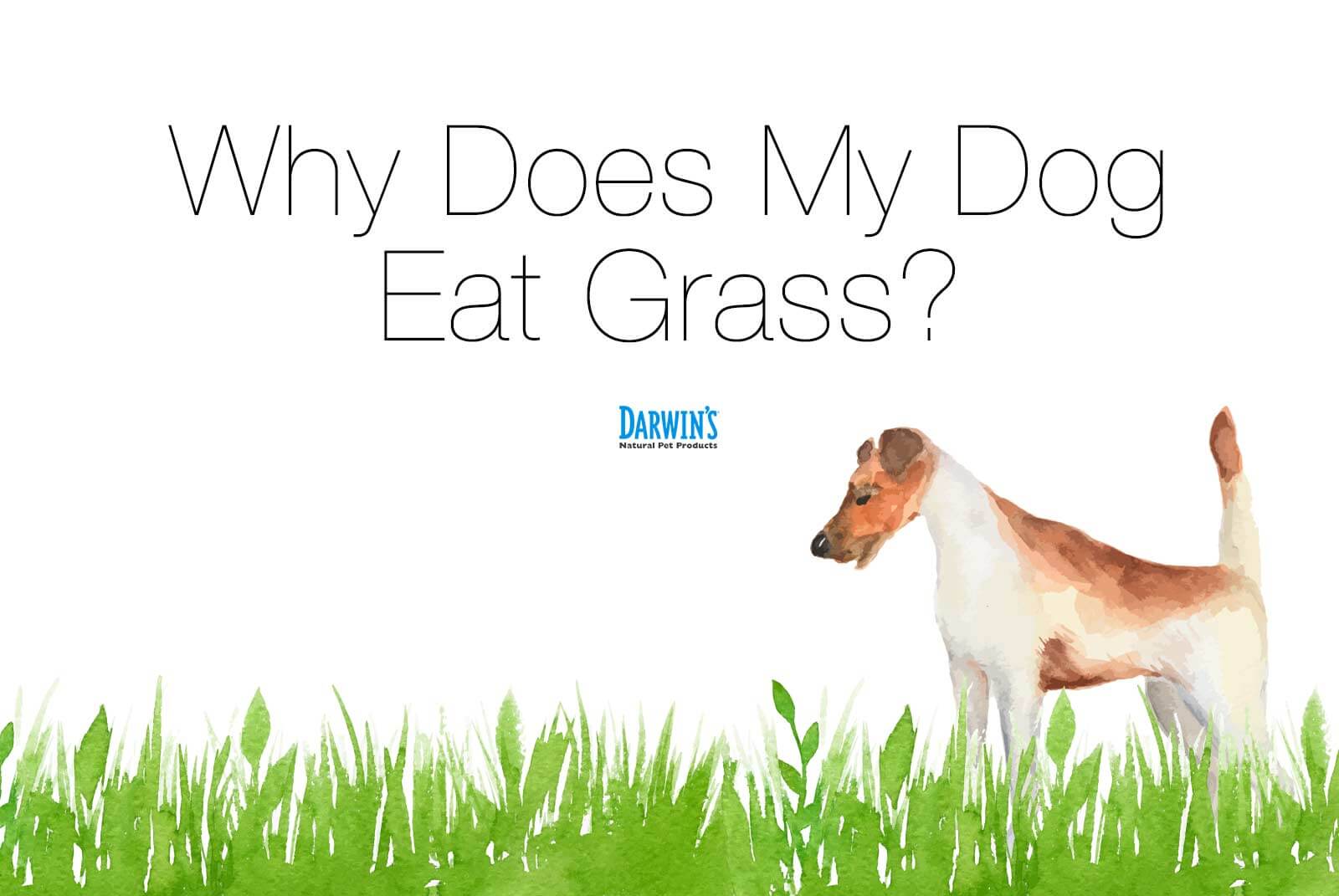Why Does My Dog Eat Grass?
5/19/16

Most vets I’ve asked about eating grass – say generally speaking it’s OK if our dogs eat a little bit of grass. Today on a hike, Walter couldn’t get enough of it so I thought I’d look at some articles to see what folks are saying across the board.
What does it mean when my dog eats grass?
Shermie is actually fairly selective with the grass he eats. He looked for wide blades that grow in patches of “wild grass” we find in wooded areas rather than “lawn” grass. A few articles talk about grass acting as a natural antacid. I think when Sherm’s stomach is upset he seeks this out. So much so, when I know he doesn’t feel good and he wakes me up in the middle of the night, it’s not necessarily to go outside and vomit or because he needs to poop, he just wants to eat grass for a-while.
We add cooked green beans to their raw Darwin’s diet (the fresh food delivered every few weeks comes with all the necessary vitamins, minerals and veggies your dog needs) so I don’t think it’s something he seeks out because he’s not getting what he needs as far as diet and nutrition. We already have roughage covered. And according to various articles I’ve read, there is no nutritional benefit to grass consumption and there are no research studies that address this issue.
According to an by –Dr. Jennifer McDaniels at The Veterinarian Cancer Center:
It’s not uncommon for our pet dogs to nibble on grass.
When you have an upset stomach you go straight to the medicine cabinet or the pharmacy. But what does your dog do? A dog will seek out a natural remedy for a gassy or upset stomach, and grass, it seems, may do the trick. When the dogs eat the grass, the grass blade tickles the throat and stomach lining; this sensation, in turn, may cause the dog to vomit, especially if the grass is gulped down rather than chewed.
Should I let my dog eat grass?
So if your dog vomits, don’t panic – the grass may tickle their stomach lining. Regurge is different than vomiting mention with hot link to Dr. Dodds article. But if your dog is eating large amounts of grass and this continues throughout the day, it might be time to see your veterinarian to see if your dog has Pica. Pica is a medical issue referring to a dog’s craving of a non-food item and the subsequent eating of said item. Now Pica is often referred to as a medical issue and I wouldn’t categorize eating grass as a medical issue but people often refer to this term so it’s important to understand what it means.
So I’m going to assume it’s just my dogs telling me they need a natural antacid like Pepcid! Some dogs may indeed need additional roughage – so you can always try adding cooked green beans or sweet potatoes. I also caution dog owners to be careful- and limit the types of grass their dogs consume as some people use chemicals and fertilizers that could be toxic to dogs. If you have any concerns that your dog might of just ate too many chemicals during their grass snacking, you can contact the ASPCA for advice.
An Idea for grass eating dogs?
What about an herb garden for your dogs: Buy wheat berries, barley grass seeds, or cleavers, and grow these – make your own herb garden for your dogs! Set aside a spot for your dogs to enjoy! I planted Parsley and Chamomile as a start to my pet friendly herb garden this weekend!
Do you have any ideas or opinions? Please leave a comment below. Darwin’s Pet Community would love to hear them!

I live with three hounds in the Pacific Northwest – two Doxies and a Beagle/Basset Hound mix.
As a Certified Veterinary Technician, I use my knowledge to inform stories on health and wellness topics. I’m not practicing but continuing my education through workshops is a high priority. Readers can expect product reviews, updates on my senior dog and how living with a reactive dog changed my life.



